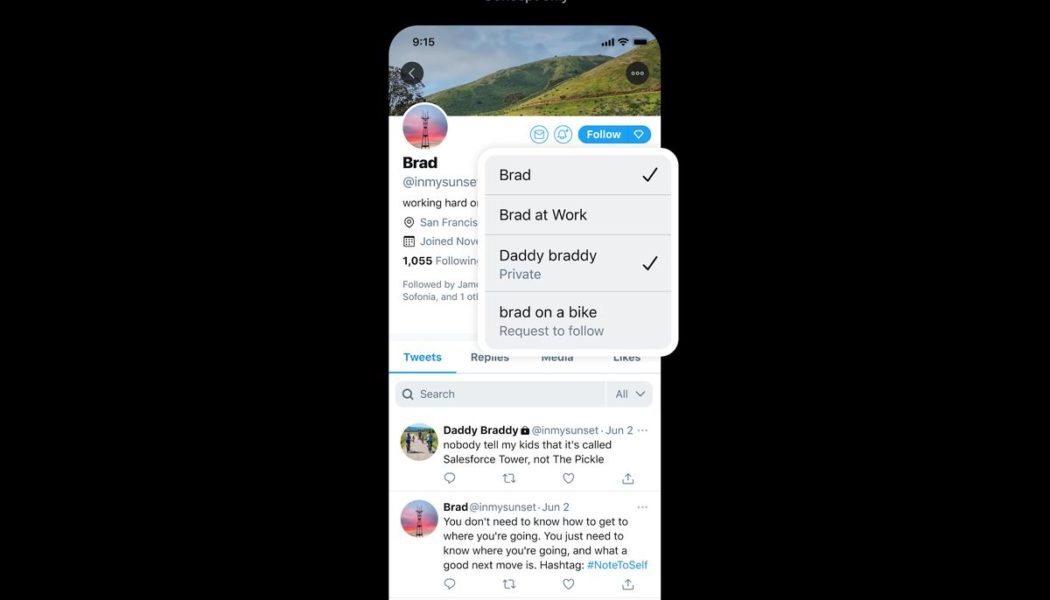Twitter has shared three early design concepts for new features it’s considering for its service. “Trusted Friends” would let users limit the audience for select tweets to a smaller circle of close friends, while “Facets” could let you categorize your tweets when you send them. Finally, the service is also considering letting users list certain phrases that they’d rather not see in their replies. These ideas are in their early stages, Twitter says, and none are currently in active development.
Many Twitter users already have multiple accounts to separate their work and personal lives, often with one of them being private to prevent sharing personal news too publicly. But features like Trusted Friends and Facets could allow for the same functionality from a single account.
Trusted Friends could offer a toggle to let you signify that a tweet should be public or only for friends (similar to Instagram’s “close friends” feature), while Facets offers more granular control, theoretically letting you sort your tweets into not just professional and personal categories, but also specific hobbies or interests you might have. Twitter says you might then be able to follow someone just for their tweets on a certain topic, rather than having to follow their account as a whole.
:no_upscale()/cdn.vox-cdn.com/uploads/chorus_asset/file/22693129/facets_2_1.jpg)
:no_upscale()/cdn.vox-cdn.com/uploads/chorus_asset/file/22693128/facets_1.jpg)
The final proposed feature would let you specify certain phrases you’d rather not see in the replies to your tweets. Followers would then see these phrases highlighted, alongside a warning to not use this language. In one of Twitter’s example screenshots, the word “asshole” is highlighted alongside a warning. Although Twitter says that people could ignore the guidance, tweet authors would have the option of moving these violating replies to the bottom of the conversation.
Twitter cautions that it isn’t currently actively building any of these features. Instead, the hope is that tweeting about them early could help the company gather feedback about its plans while they’re still in their early phases. Last month Twitter privacy designer Dominic Camozzi tweeted a similar work in progress feature to let users “unmention” themselves when they’re tagged into a conversation.
:no_upscale()/cdn.vox-cdn.com/uploads/chorus_asset/file/22693130/smellcheck_03.jpg)
It comes just weeks after the company started publicly testing a new Tip Jar feature, only for people to quickly discover that it risked showing whoever’s receiving the money the sender’s home address when using PayPal. Although the problem was technically caused by PayPal rather than Twitter, critics argued the social network should have given users more warning when they used the payment feature. Discussing features like these earlier in their design process could theoretically root out problems like these before release.
Equally, Twitter’s features have a habit of becoming public before they’re officially announced because of the work of app researchers like Jane Manchun Wong, who dig through its app’s code for signs of unreleased functionality. If Twitter pre-announces a feature like this before it starts building it, there’s less of a chance of outsiders finding it early.










